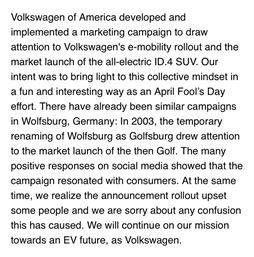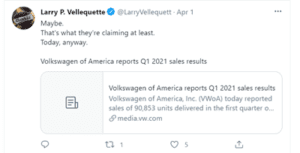By Brent Snavely, Senior Director
I thought it was an April Fools’ Day joke the moment I saw it – and so did most of the reporters who cover Volkswagen.
But the marketing ploy that unfolded over the course of three days was not funny because it involved deliberate deception by Volkswagen and its PR team. This deception not only damaged Volkswagen’s credibility – it also harmed several of the best automotive reporters in the business – and the news business in general.
To fully understand why this was a big deal we need to take a step back:
On Monday, March 28 – three days before April Fool’s Day – a press release announcing that Volkswagen was going to change its name to ‘Voltswagen’ briefly appeared on the company’s media page. Reporters noticed it before it was removed. The release said the name change was intended to underscore the company’s commitment to bringing a number of new electric vehicles to market.
Many smart reporters were skeptical, because global brands generally don’t throw away decades of name equity and brand recognition for something so obvious and kitschy. Then again, Fiat Chrysler and Peugeot Group just merged and changed renamed the company Stellantis – but that’s a topic for another day.
For that reason, pretty much every automotive journalist who called Volkswagen about the name change asked if the whole thing was a joke. They were assured, on background, that it was NOT a joke. They were told that the news, while accidentally appearing on the website early, was indeed true.
Based on that, major news outlets including the Associated Press, Automotive News, CNBC, USA Today and others reported that the name change was true – and some even went out of their way to explain that trusted sources told them it was not an April Fool’s Day joke.
On Tuesday, Volkswagen distributed an official press release via email, confirming the ‘Voltswagen’ name change. But later that same day, after the announcement caused a stir among customers, the public, journalists and analysts, Volkswagen said it was all a joke.
Here’s why this wasn’t funny:
- The initial release was leaked three days before April Fool’s Day
- Volkswagen intentionally deceived reporters who were initially skeptical
- Volkswagen doubled down the next day with an official press release that provided no hint of it being fake and posted that release on their website
- Volkswagen’s actions led to fake news and information being distributed at a time when media organization are under more scrutiny than ever
The fallout, once the media knew the real story, was swift and brutal on both social media and in follow-up stories. Here are some examples:
- Volkswagen hoaxes media with fake statement on name change – Associated Press
- BLOG: VW lied to sell diesels; now it lied to sell EVs – Automotive News
- Volkswagen won’t be ‘Voltswagen’ after all: Misleading marketing is risky, especially for VW – USA Today
- Volkswagen’s U.S. Name Change Was an April Fools’ Joke Gone Awry – Bloomberg News
Volkswagen’s public relations team did not respond to an email from me that I sent last week asking for the company’s side of the story. The company did post this explanation on Facebook on Wednesday, March 31:
- What began as an April Fool’s effort got the whole world buzzing. Turns out people are as passionate about our heritage as they are about our electric future. So whether it’s Voltswagen or Volkswagen, people talking about electric driving and our ID.4 can only be a good thing.
The company also provided this statement to Reuters:

Both statements make it clear the company cared more about creating marketing buzz than telling the truth. And both statements ignore the fact that Volkswagen, on multiple occasions, lied to the media – which is something public relations professionals should never do.
Good reporters expect public relations professionals to present their best-case version of the truth – or even to spin the truth – but will never forgive or forget a direct lie. Both journalists and communications professionals spend years building up their credibility – it is the invaluable currency that serves as the foundation for both professions. But credibility can be destroyed overnight.
And that’s why this is a problem for Volkswagen – the reporters who were duped feel betrayed and also feel like they have let their readers down. The stunt also comes at a time when the media is under attack. Indeed, reporters who called Volkswagen out on Twitter for lying about the situation were mocked for days for, among other things: not being able to take a joke, lacking a sense of humor, being stupid, failing to do their jobs as investigative reporters and too easily believing the company.
Here is how somebody responded to one of my tweets in response to Nathan Bomey at USA Today:


Reporters will now hold Volkswagen to a higher standard in the future – and rightfully so. If Volkswagen was willing to lie to create buzz on something trivial aimed at generating marketing buzz, how can the company be trusted to tell the truth the next time Volkswagen is faced with difficult challenges or questions?
I will close with this tweet below from Larry Vellequette, of Automotive News, reacting to the company’s monthly U.S. sales release:


Snavely shared his insights in a recent PR Week article, ‘Voltswagen’ pun turns into a bad joke. To learn more about Lambert’s Automotive & Mobility practice, connect with us today!

